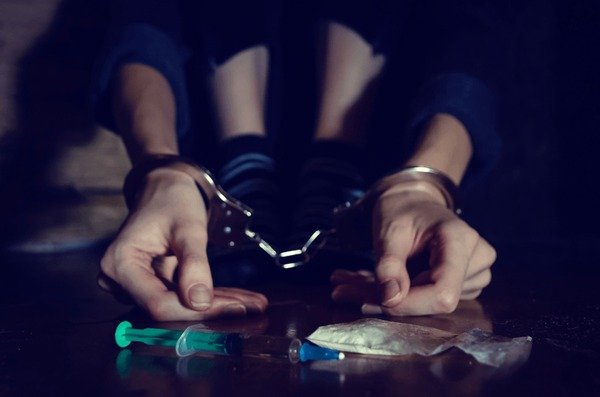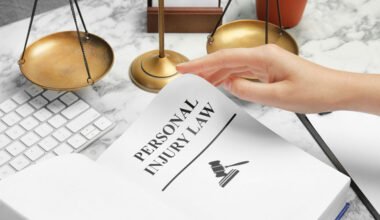Known for its beaches and artsy vibe, St. Petersburg also has a growing population and a steady flow of traffic in and out of the city—factors that have put it on the radar of state and federal drug enforcement agencies. St. Petersburg’s proximity to major highways and ports makes it a natural target for law enforcement and federal drug task forces. It’s not just about someone smoking weed in the park.
It could be a neighbor being charged with trafficking because they crossed county lines with a few grams too many. And once you’re in the system for a drug crime, even a small one, it can mess with your job prospects, housing, and your whole future.
That’s why if you’re anywhere near being charged with a drug offense in the area, it’s essential to get the right help, fast. A drug crimes lawyer from St. Petersburg knows exactly how local courts treat different drug offenses and what kind of options you actually have.
Drug Crime Classifications
Drug crime charges vary based on the type of drug, the amount involved, and what law enforcement believes you intended to do with it. A gram of coke in your backpack doesn’t carry the same consequences as a few pounds of meth found in your trunk. That’s the first thing to understand: the law doesn’t just look at what drug it is; it looks at the why, the how much, and the what now.
For example, possession of a Schedule I drug like heroin is already serious. But if you have enough of it that cops think you were planning to sell it, you’re facing a whole different level of trouble. That’s how things get upgraded from simple possession to charges like intent to distribute or even trafficking. And once you’re looking at trafficking, it often means mandatory prison time.
Also, Florida law doesn’t mess around with anything that looks like manufacturing or distribution. If you’ve got a digital scale, baggies, and a pill press lying around, those things alone can get you hit with additional charges. It doesn’t even matter if you had drugs on you at that exact moment. The law can interpret those items as tools for drug production or sales.
Types of Drug Charges You Might Face
There’s a long list of drug-related charges you could be looking at, and they all come with different levels of punishment.
Here are the main ones:
- Simple Possession: This is when you’re caught with a drug for personal use. It’s often treated as a misdemeanor, especially if you’ve got a clean record. But if it’s something like cocaine or heroin, even a small amount might still be charged as a felony.
- Possession with Intent to Sell: If you have enough drugs that it seems like more than just personal use, the law assumes you’re planning to sell. This is usually a felony, and the sentence can range from probation to several years in prison, depending on the drug.
- Trafficking: In Florida, having more than 25 pounds of marijuana or just 28 grams of cocaine can get you hit with a trafficking charge. It comes with mandatory minimum sentences, sometimes up to 25 years.
- Manufacturing: Running a meth lab or growing weed in your backyard without the right licenses will earn you a manufacturing charge. These cases often come with added charges for putting others at risk, especially if it’s near schools or in an apartment complex.
- Prescription Fraud: Even legally prescribed meds like Oxy or Xanax can land you in court if you don’t have a valid prescription. Florida takes prescription drug misuse seriously, and these cases often come with felony charges.
Drug Schedules
Drugs are sorted into five categories called “schedules.” This system was set up under the Controlled Substances Act, and each schedule reflects how dangerous the drug is considered to be, plus how likely it is to be abused or misused.
Here’s a quick breakdown:
- Schedule I drugs (heroin, ecstasy, LSD, marijuana) have no accepted medical use and a high potential for abuse. Even if you’re using them casually, possession is a serious criminal offense.
- Schedule II drugs (cocaine, meth, fentanyl, oxycodone) are extremely addictive but can have limited medical use. They’re legal only if prescribed, and even then, there are strict controls.
- Schedule III to V drugs have accepted medical use and lower risks of abuse. These include anabolic steroids, Xanax, and cough syrups with codeine. But just because they’re lower in the schedule doesn’t mean the law takes them lightly; having these drugs without a prescription is still a criminal offense.
The schedule your drug falls into decides a lot, whether you’re looking at probation or prison, whether the court sees you as a danger to society or someone who needs rehab.
Conclusion
Drug convictions stick with you. Even if you only get probation, the record can affect where you live, what jobs you qualify for, whether you can get student loans, and even custody arrangements if you’re a parent.
Plus, Florida doesn’t play around with felony convictions. Once you’ve got one, it’s not easy to undo. Expunging a record is possible in some cases, but not all. You need a strong defense from the start, one that’s built around the specifics of your charge, your history, and your options.



